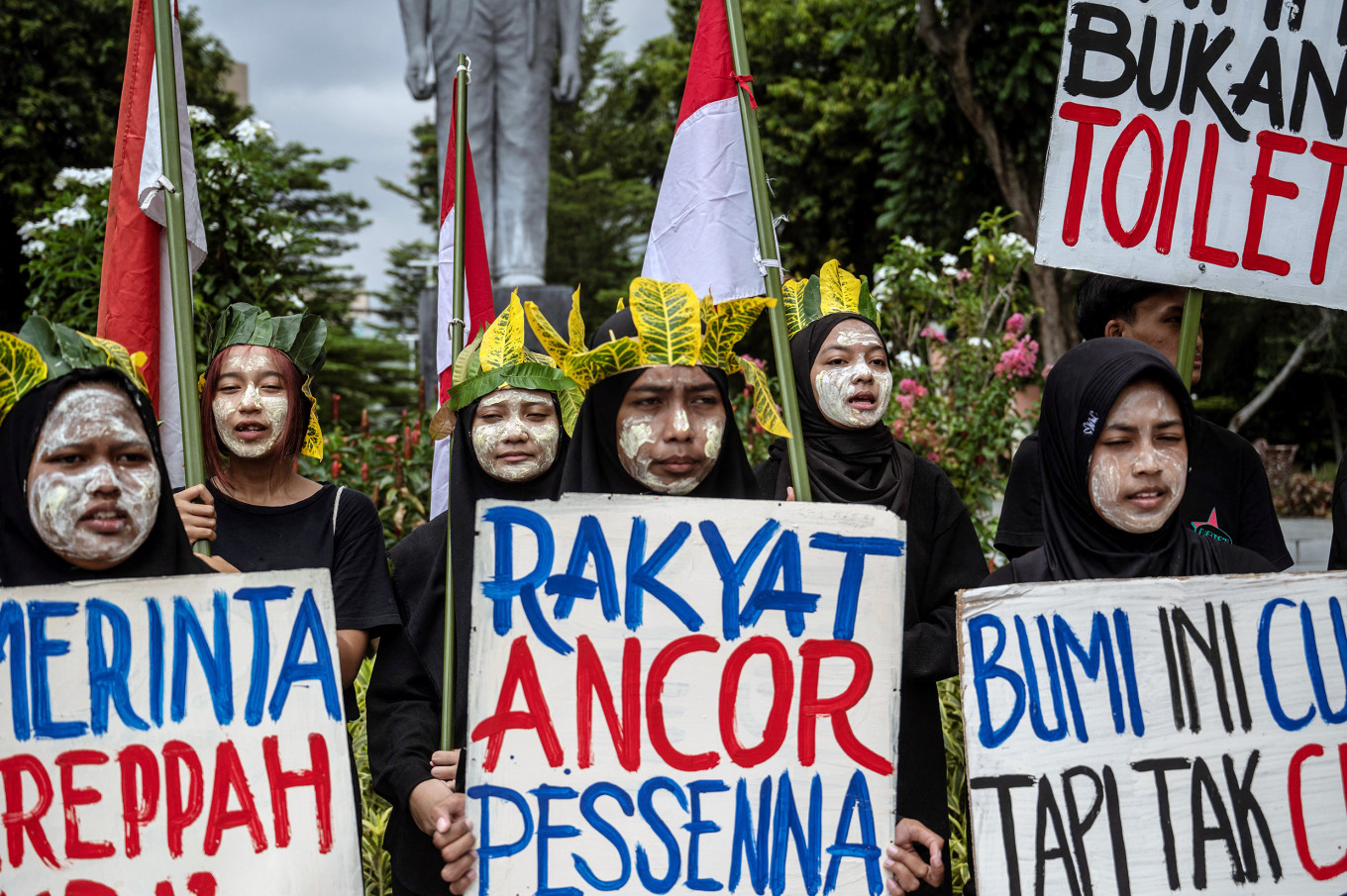Plastic is great, but too cheap
Microplastics were found in human blood and lungs last year, with the vast majority of participants in a study testing positive for plastic.
Change Size

D
elegates from more than 100 countries are gathering in Paris this week to thrash out some sort of agreement on plastic pollution. Indonesia’s representatives will reportedly try to block a proposal to cut virgin plastic output. That does not look good on us.
Different ideas for dealing with plastic pollution will be discussed in the second session of the Intergovernmental Negotiating Committee (INC-2), but the so-called High Ambition Coalition of countries led by Norway and Rwanda wants to start where plastic itself starts.
On its website, the coalition’s 54 members call for “binding provisions in the treaty to restrain and reduce the production and consumption of primary plastic polymers to sustainable levels.”
The Industry Ministry worries that the plan would do undue damage to local industries, including petrochemical projects that involve foreign investors and have yet to get up and running.
The government says it supports efforts to protect the environment but needs to allow for further growth of the industry to “balance between economic, environmental and social aspects.”
That sounds fair enough, but can the issue be seriously tackled without reducing or at least capping virgin plastic production, given that global plastic output almost doubled in the first two decades of this century?
In 2019, “only 9 percent of plastic waste was ultimately recycled,” according to an Organisation for Economic Co-operation and Development report. Almost 50 percent ended up in landfills, and “22 percent was disposed of in uncontrolled dumpsites, burned in open pits or leaked into the environment.” In that one year alone, 22 million tonnes of plastic materials leaked into the environment.
While this is, of course, a waste management issue, it seems unrealistic to expect waste management to keep up with a massive and rising flood of newly produced plastic when the world currently recycles less than a tenth. Furthermore, if the world did recycle, say, 50 percent, would production still need to grow?
In Indonesia at least, the issue of plastic pollution seems to have moved to the background over the past year or two, with public discussion focused on phasing out coal and on switching to electric vehicles, even while they largely run on coal.
Yet plastic pollution is no less concerning than climate change, not to mention the fact that the two are connected. The idea of ingesting plastic worries people. Microplastics were found in human blood and lungs last year, with the vast majority of participants in a study testing positive for plastic.
On the other hand, plastic is extremely versatile, quite light and energy efficient, and countless things simply would not exist without it. Its properties reduce the carbon footprint of many products, and 3D printing of plastic parts could slash resource waste.
The problem is that plastic is cheap. While its production cost is low, the cost of the damage it causes is immense. Frankly, the low price does not adequately reflect what an important material plastic is. Plastic is fantastic, so it should cost more. People would still buy it, it is that good.
A higher price of virgin plastic would create more attractive margins for collecting and recycling plastic waste, because it would make discarded material more competitive vis-à-vis new material.
The price needs to be so high that collection and recycling would not rely on donations or public sector support, as private businesses would jump at the opportunity.
It is understandable that the government has no interest in cutting domestic output just to see foreign firms fill the void. Local producers may need support to substitute imports.
Indonesia has come quite a way in cleaning up rivers and preventing plastic from reaching the sea, but it is still one of the major marine polluters. As such, being defensive at a global forum on plastic waste is not an option.
Rather than blocking a proposal, our delegation must be part of the solution, not least because our seafood and tourist industries depend on clean oceans.









